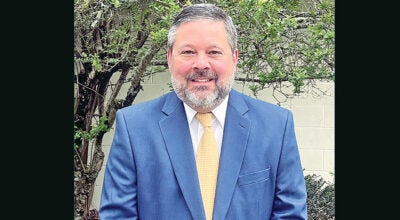Brown hails Obama’s pick of Garland for Supreme Court
Published 2:00 pm Thursday, March 17, 2016
WASHINGTON — U.S. Sen. Sherrod Brown, D-Ohio, said “there’s no question” about the qualifications of President Barack Obama’s pick to fill a vacant seat on the United States Supreme Court.
On Wednesday, Obama announced the nomination of Merrick Garland, the chief justice of the United States Court of Appeals for the District of Columbia, to fill the seat on the high court left vacant following the death of Justice Antonin Scalia in February.
“I think he’s one of the most respected appeals court justices in the country,” Brown said in a news conference with reporters on Wednesday. “He was confirmed overwhelmingly to the D.C. court in 1997.”
Brown said that Supreme Court Chief Justice John Roberts, who was a colleague of Garland on the D.C. circuit, has spoken highly of the nominee.
“He’s said ‘Any time Judge Garland disagrees with you, you know you’re in a bad position,’” Brown said.
Brown said he hoped the pick of Garland, viewed as a centrist by most court observers, would motivate the Senate to act on filling the seat.
“My reaction is the Senate should do its work,” Brown said of the need for confirmation hearings, which Senate Majority Leader Mitch McConnell, R-Kentucky, has vowed not to hold. “There’s no historical precedence for not doing it.”
Brown said that the last time a Supreme Court seat was kept open for a length of time that would be comparable to waiting until the election was in the 1860s, and was due to the American Civil War. He also rejected Republican claims that the voters should have a voice in the nomination, stating that they made their decision when they re-elected Obama in 2012.
He said the job of Senate needs to do is clear.
“The Constitution says ‘the president shall have the power to appoint,” Brown said. “Not ‘shall, unless it’s the president’s last year.’”
Brown said he was “incredulous” that the Republican leadership refuses to give a nominee a hearing, and asked if the same lame duck standard would apply to senators.
“Does this mean if you have a six-year term you quit working in the last year?” he said.
Brown’s Republican counterpart from Ohio, U.S. Sen. Rob Portman, issued a statement on Thursday, stating that he believes the Senate should wait until after the election to confirm a nominee.
“As I have said previously, I believe it is better for the country to allow the American people to have a voice in this debate,” Portman said. “We are in the midst of a highly-charged presidential election that is less than eight months away, and this lifetime appointment could reshape the Supreme Court for generations. I believe the best thing for the country is to trust the American people and allow them to weigh in on this issue.”
Portman said the move to block hearings was about “the principle, not the person.”
“I believe that awaiting the result of a democratic election, rather than having a nomination fight in this partisan election-year environment, will give the nominee more legitimacy and better preserve the Court’s credibility as an institution,” Portman said. “After the election, I look forward to considering the nominee of our new president.”
Brown said U.S. Sen. Orrin Hatch, R-Utah, who serves on the Senate Judiciary Committee, has offered praise of Garland, which he thought was a promising sign that might show the atmosphere changing.
“I hope it does,” Brown said. “That would be wonderful.”
A poll, conducted by Public Policy Polling from Feb. 19-21, found that 58 percent of Ohio voters wanted the Senate to fill the seat this year, with 35 percent opposed.
McConnell issued a statement shortly after Obama’s announcement, and said there would still be no confirmation hearings and that he would not meet with a nominee.
“The next justice could fundamentally alter the direction of the Supreme Court and have a profound impact on our country, so of course the American people should have a say in the Court’s direction,” McConnell said. “The Senate will appropriately revisit the matter when it considers the qualifications of the nominee the next President nominates, whoever that might be.”





